Roadblocks to ‘destination Zimbabwe’
Pervasive bribe-seeking police checkpoints hinder travellers on the roads to Zimbabwe’s famous tourist spots.

Harare, Zimbabwe – Known for its poverty and authoritarian leadership, Zimbabwe is also home to some of the world’s most stunning natural wonders.
But the African nation’s alluring holiday destinations are struggling to attract tourists these days, and some are blaming the decline on the rising number of ubiquitous security checkpoints on highways manned by armed police officers demanding bribes.
Keep reading
list of 4 itemsBehind India’s Manipur conflict: A tale of drugs, armed groups and politics
China’s economy beats expectations, growing 5.3 percent in first quarter
Inside the pressures facing Quebec’s billion-dollar maple syrup industry
Hotels and tour operators at Victoria Falls – the largest waterfall in the world, Zimbabwe’s main tourist attraction, and once a major revenue earner – and at several nature reserves are among those suffering from the fall in the number of visitors as numerous “roadblocks” discourage tourists to undertake road travel.
Police have set up checkpoints almost every 20km along all major highways of the impoverished southern African country.
From the capital Harare with its colonial charm to UNESCO World Heritage sites such as the granite land-form in Matobo Hills, police stop cars on the road ostensibly to control high levels of crime, including armed robberies and murders.
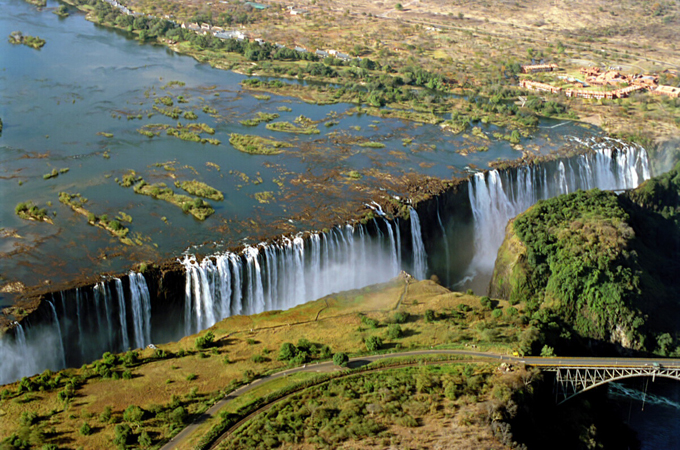 |
| Victoria Falls is the largest waterfall in the world and attracts thousands of tourists every year [Gift Phiri/Al Jazeera] |
But in reality at these checkpoints, stern-faced officers extort tourists for cash, and often detain them for several minutes if they refuse to cough up some dough.
Many tourists who want to visit Victoria Falls would rather fly there directly on the 90-minute flight from Johannesburg, rather than travel by road and along the way visit nature reserves teeming with the “big five” game – lions, elephants, buffalo, leopards, and rhinos.
Other travellers prefer to stay across the Zambezi River on the Zambian side of Victoria Falls.
Namibian tourist Erik Hersman, a technology entrepreneur, recalled spending 17 hours on a 577km stretch of highway from Beitbridge – on the border of Zimbabwe and South Africa – to Harare.
“Zimbabwe has thin but good roads and many – over 15 – police checks and radar guns along the way to Harare,” Hersman said. “They really do try to stop you.”
His journey had started at 4am. “We got in at 9:30pm and fell asleep almost immediately.”
 |
| Erik Hersman (R) recounts his long road trip and the numerous road blocks he encountered along the way [Gift Phiri/Al Jazeera] |
The power of a smile
In 2014, more than 1.8 million people travelled to Zimbabwe for a holiday, according to the Zimbabwe Tourism Authority and a similar figure visited in 2013.
The devastating impact of the roadblocks on tourism has become more apparent and Zimbabwe’s home affairs ministry, in collaboration with the tourism and hospitality industry ministry, has instituted training courses for traffic officers on “smiling” and treating tourists and other motorists with kindness.
“A smile can change a lot,” Home Affairs Deputy Minister Ziyambi Ziyambi told the Senate. “We do not condone any harassment of foreign tourists.”
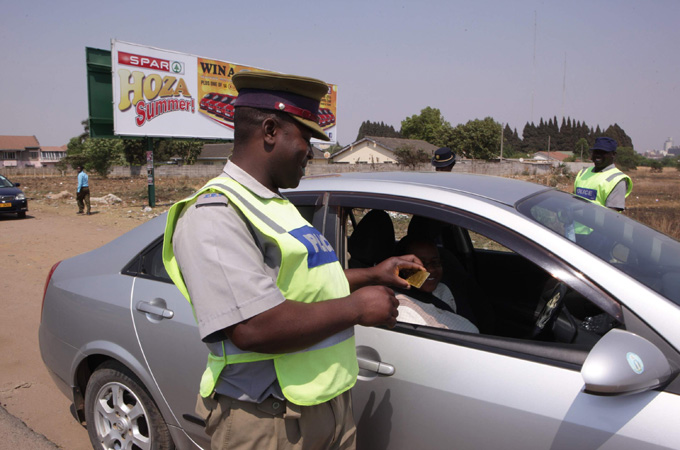 |
| Police in Zimbabwe are learning to smile and treat motorists with kindness [Gift Phiri/Al Jazeera] |
Lack of domestic air travel options forces most tourists to travel by road to access many attractions, such as Mount Inyangani, the eastern highlands, the smaller but also spectacular Bridal Veil Falls and Mutarazi Falls, as well as Hot Springs, where villagers believe the boiling water is stirred by mermaids.
The ZTA said these resorts have become unattractive to tourists who must endure as many as 14 police checkpoints on the 263km stretch of highway between Harare and Mutare.
The decline in tourist visitors has also affected communities who depend on selling souvenir artifacts to tourists on roadsides, especially along the Beitbridge to Victoria Falls highway.
Police spokeswoman Charity Charamba said checkpoints are necessary on the highways to fight crime.
“We are not fundraising, we want people to adhere to the road rules and regulations,” Charamba said on state-run television station.
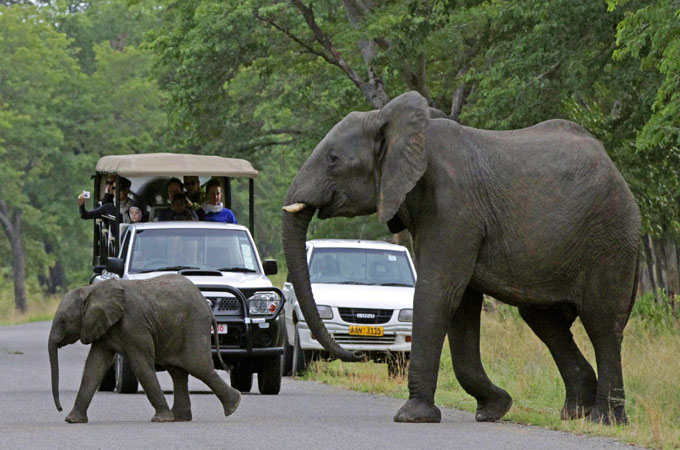 |
| The nature reserves in Zimbabwe are teeming with the ‘big five’ game – lions, elephants, buffalo, leopards, and rhinos [Reuters] |
“This is the only reason why we ask drivers to deposit fines if they are on the wrong side of the law. The issue of roadblocks is not synonymous to Zimbabwe only, all countries deploy officers to roadblocks.
“The duty of officers at roadblocks is not only to find faults in vehicles. There are many things that we look for. Some of the duties are to hunt for murderers who are fugitives from justice, wanted persons – we find them at these roadblocks.”
A December 2014 Transparency International’s Corruption Perceptions Index ranked Zimbabwe 156 out of the 176 countries included in the assessment. The country’s ranking fell from 151 in 2011.
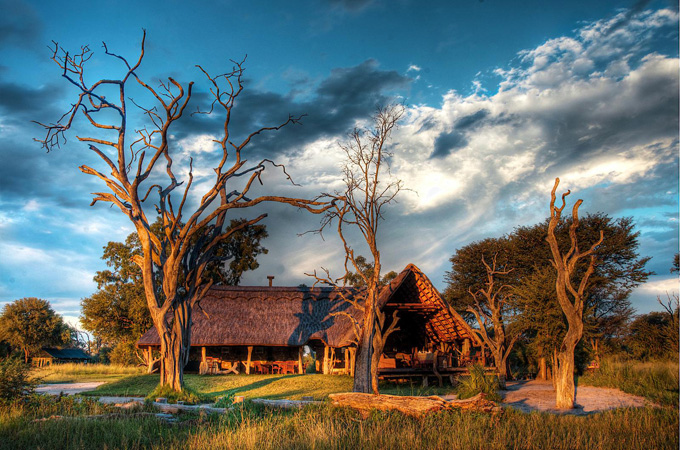 |
| Bomani Tented Lodge in Hwange national park [Gift Phiri/Al Jazeera] |
Rebranding roadblocks
Walter Mzembi, Zimbabwe’s tourism and hospitality industry minister, objected to the use of the word “roadblock”, saying the phrase “de-brands destination Zimbabwe”.
“The moment you say roadblock it means you are blocking entry. We prefer the use of the words ‘security checkpoint’ as is the practice in other countries,” Mzembi told Al Jazeera.
“As in all other countries at security checkpoints, you find a conglomeration of various compliance agencies from Zinara [Zimbabwe National Roads Administration], customs to immigration – they will all be at one security checkpoint so that they reduce the frequency of those checkpoints along tourist highways.
“And, I would imagine, that’s what we want to do,” he said.
Mzembi admitted, however, the police stops were negatively affecting the tourism sector.
“I’m actually amazed that there has been such a huge proliferation of those security checkpoints … I think there should be a breakdown because tourism is crying over the impact of security checkpoints.”
Paul Matamisa, chief executive officer at the Zimbabwe Council for Tourism, agreed. “Obviously, it’s very disruptive to tourism,” he said.
“They don’t work for us in the sense that it’s a disturbance to one who has a plan and wants to move about,” Matamisa said.
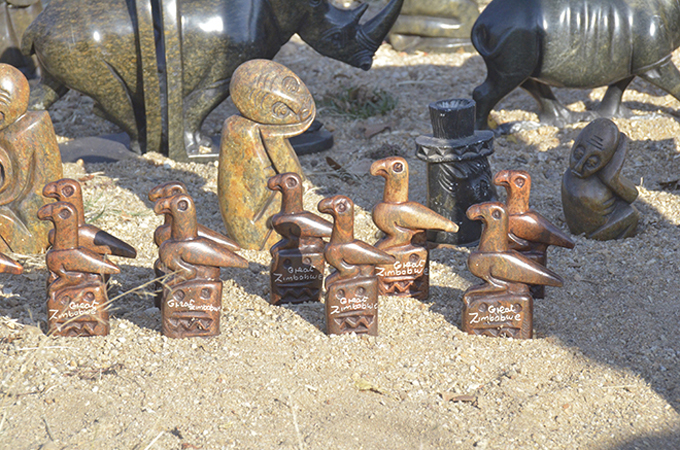 |
| Local communities depend on the sale of souvenir artifacts to tourists [Gift Phiri/Al Jazeera] |
“If they [tourists] want to travel by road, say coming from Beitbridge to Harare, then want to go to Victoria Falls … they did not include all these stoppages [in their schedule], whether they are going to be 10-minute stoppages or 20-minute stoppages. So in the end its disruptive.”
Because tourists are now shunning road travel, rural communities selling souvenir artifacts have suffered a serious loss in business.
“Even if they are on the road, for them to now stop and buy things … you see, it is taking some more time [from them] … The tourist’s mind is already disturbed from what he has gone through, it is not right,” Matamisa said.
The government projects the tourism sector will contribute 15 percent to Zimbabwe’s GDP in 2015 and will employ one person in every 10. But critics say the projections will be a long shot if nothing is done to dismantle the numerous checkpoints affecting travel.
“We are bemoaning that our small to medium-scale enterprises have been consigned to the backyard when they should actually be the first window shop of Victoria Falls in terms of the artifacts that they are selling,” said Mzembi.